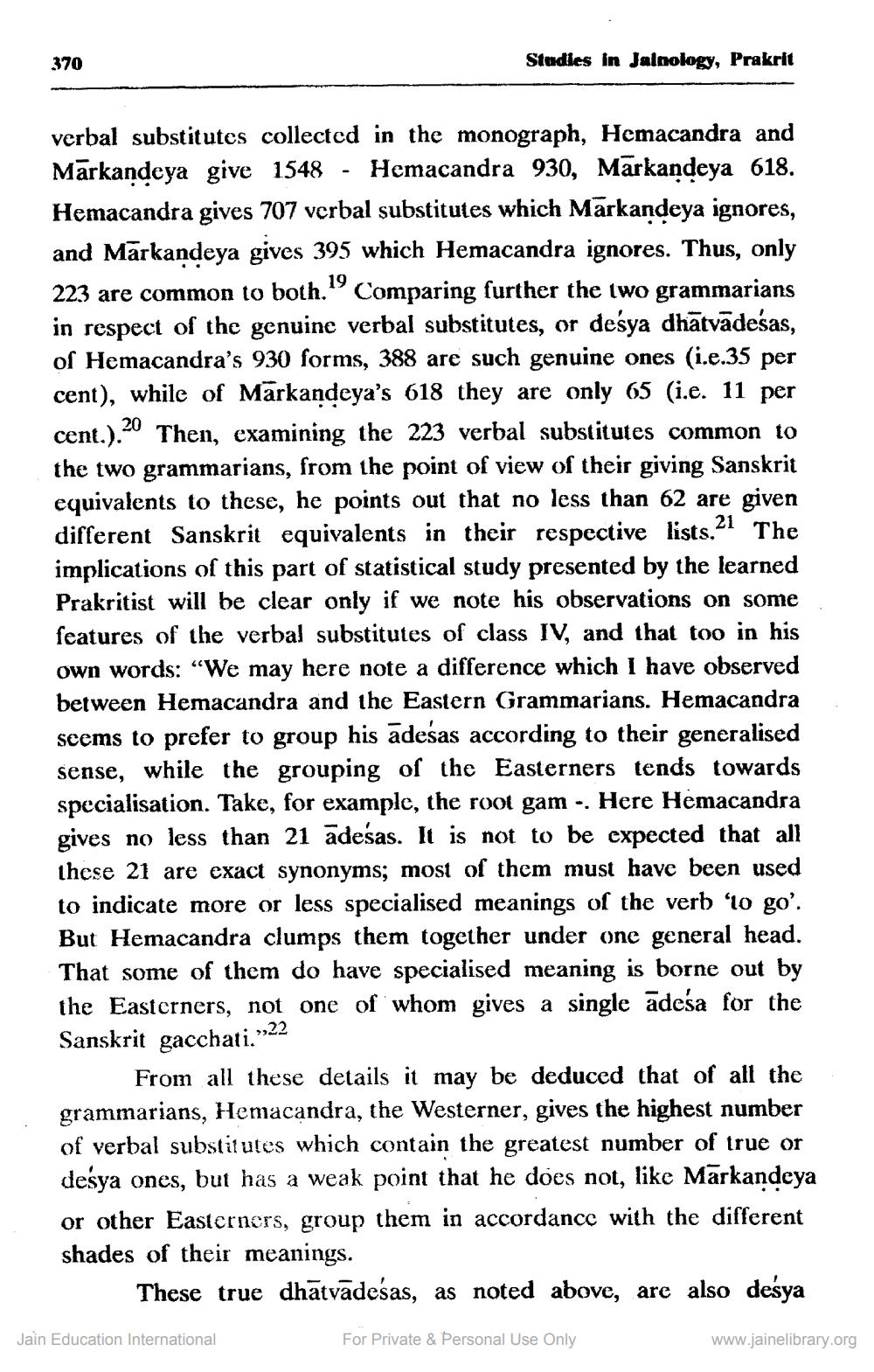________________
370
21
verbal substitutes collected in the monograph, Hemacandra and Markandeya give 1548 Hemacandra 930, Markandeya 618. Hemacandra gives 707 verbal substitutes which Märkandeya ignores, and Markandeya gives 395 which Hemacandra ignores. Thus, only 223 are common to both." Comparing further the two grammarians in respect of the genuine verbal substitutes, or desya dhatvadesas, of Hemacandra's 930 forms, 388 are such genuine ones (i.e.35 per cent), while of Markandeya's 618 they are only 65 (i.e. 11 per cent.).20 Then, examining the 223 verbal substitutes common to the two grammarians, from the point of view of their giving Sanskrit equivalents to these, he points out that no less than 62 are given different Sanskrit equivalents in their respective lists." The implications of this part of statistical study presented by the learned Prakritist will be clear only if we note his observations on some features of the verbal substitutes of class IV, and that too in his own words: "We may here note a difference which I have observed between Hemacandra and the Eastern Grammarians. Hemacandra seems to prefer to group his adesas according to their generalised sense, while the grouping of the Easterners tends towards specialisation. Take, for example, the root gam .. Here Hemacandra gives no less than 21 adesas. It is not to be expected that all these 21 are exact synonyms; most of them must have been used to indicate more or less specialised meanings of the verb 'to go'. But Hemacandra clumps them together under one general head. That some of them do have specialised meaning is borne out by the Easterners, not one of whom gives a single adesa for the Sanskrit gacchati."
,,22
Studies in Jainology, Prakrit
-
Jain Education International
From all these details it may be deduced that of all the grammarians, Hemacandra, the Westerner, gives the highest number of verbal substitutes which contain the greatest number of true or desya ones, but has a weak point that he does not, like Märkandeya or other Easterners, group them in accordance with the different shades of their meanings.
These true dhātvadesas, as noted above, are also desya
For Private & Personal Use Only
www.jainelibrary.org




